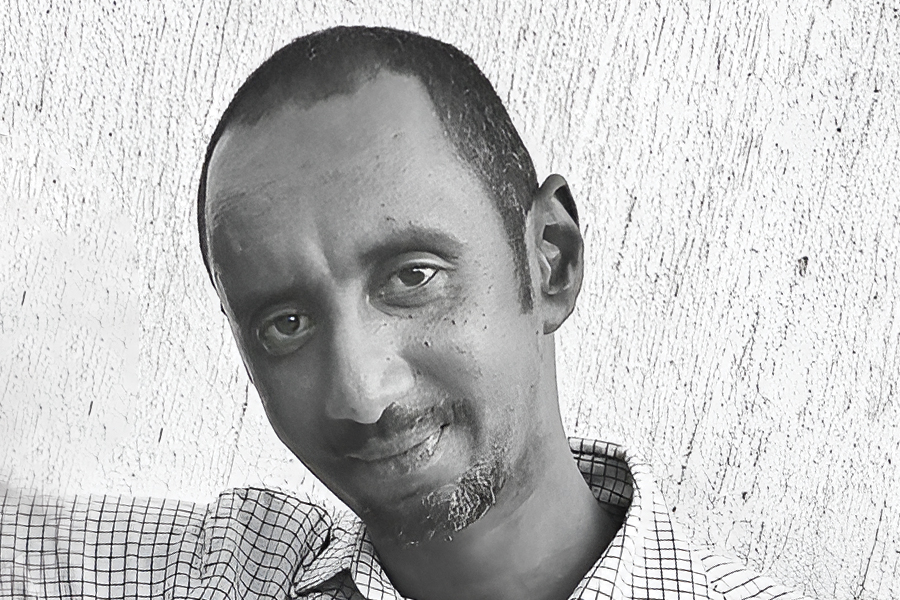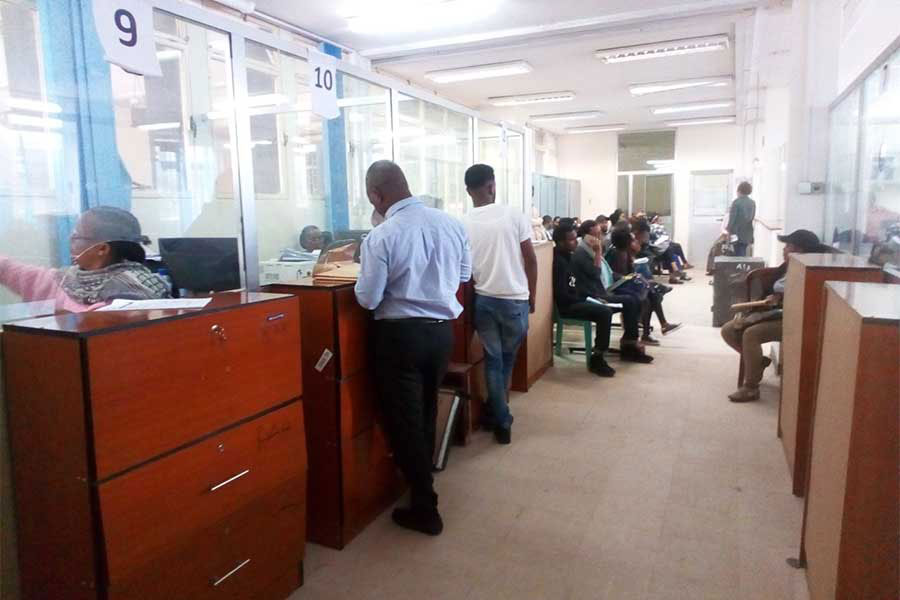
Obituary | Nov 09,2024
Aug 10 , 2019.
Prime Minister Abiy Ahmed (PhD), in the press conference he gave last week, communicated the decision of the EPRDF to hold the 2020 elections on schedule. That means there is now less than a year until polls open. Therefore, campaigning should be starting soon.
However, even a brief look into current Ethiopian political conversations will make it abundantly clear that there is a severe decline in civil political discourse. Admittedly, there was not a lot there to begin with.
For most of Ethiopia’s history, under all the regimes despite their inherently different nature, political communication was the absolute preserve and domain of the elite in political power. This elite, which has itself prevailed over the competing and contesting elites, fully controls and monopolises instruments of political communication such as the mass media, postal services, telephone communications, rallies and public addresses. The defeated elite, now deprived of any legal means of communication, goes underground and tries, however limited and dangerous the attempt may be, in its effort to counter the narrative by the victorious elite. This included, among other things, efforts by dissident groups overseas in broadcasting their counter narrative through shortwave radio services.
The victorious elite, barring its contenders altogether from reaching out to the citizenry, utilises its monopoly of the communications space to indoctrinate the captive audience to its sacrifices, glories, accomplishments and the bright future ahead under its leadership. It bombards the choiceless and passive population with propaganda.
That is, only until another victorious elite unseats it.
The advent of information technology infrastructure has changed this relationship. Technological advancement through the years has given choice and access to a lot of people. The audience is no longer captive to an elite in political power but has begun to access multiple and diverse counter narratives. Through satellite services beaming down from space and the expansion of mobile networks and penetration of services, the average citizen now has much more exposure to differing and contradictory opinions.
Holding the monopoly of power no longer guarantees the monopoly of information. It is no longer expensive, out of bounds or risky for the young and restless youth to get exposed to contending worldviews. Neither the senders nor the recipients of these messages incur much cost or risk in political communications. The monopoly by an elite in political power has been broken. The public is no more subject to the indoctrination of the similar and repeated worldview of one group.
Even though this, on its face, may look good for democracy, a closer look will show that such platforms of political communications have caused not only the emergence of diverse and pluralised views in the marketplace of ideas. They have also created echo chambers that deepened polarisation. They have created ghettos and islands of truth. Each group is cascaded alongside identity faultlines, leading to the loss of moderation and civility in discourse.
In a political landscape where constitutional institutions are weak and feeble to mediate contests for political power, the outcome could be ungovernableness. There appears to be a disconnect between the authoritarian political culture with a knack for coercive structures to subdue voters to preferred outcomes and a competitive political space that believes in persuasion as it ought to encourage expression and participation.
As a result of these historical factors and the advancement of information technology, the current phase of relative freedom finds the country in a precarious position. Ethiopia’s social organisation does not appear to be a match for institutional strength, the political culture of its mobilised forces, the behaviour of their leaders, and the demands of their constituencies that electoral politics requires.
The lack of a developed culture of civil discourse coupled with the segregation of information as a result of polarisation increases the damage that can be caused by uncivil discourse exponentially. The mutual hostility where political actors live in islands of their own making, lobbing insults at each other to the cheers of their supporters, stifles debate and alternative ideas. That in turn brings about a spiral of silence, where a vast majority of people are turned off by the shrill and rude but loud minority who dominate the airwaves.
This is especially true at times of elections. Election campaigns are the shopping malls of ideas where citizens are supposed to window shop on the broadest possible selection of policy options and governance ideas. In the end, the most persuasive and well-reasoned position would get their vote, ideally.
As a result, election contests are moments of intense battles of ideas by design. The public discourse is to take place in high tension and perhaps bitter contests for power. These discussions in times of electoral competitions, if not conducted in the right spirit, are what makes the matter more delicate.
Unlike monarchy that stands on blind loyalty or a dictatorship that rules by fear, democracy depends on the virtue of the people. The whole system rests on the concept of citizens being involved in their self-governance. That presupposes the participation of citizens making informed decisions on issues of policy and governance. There is no way that can happen without political discourse.
Civil discourse requires a seriousness of purpose in the political dialogue that aims toward the creation of an equitable society that works for all. The goal is to find shared opportunities, not conflict. It is using debates to generate creative solutions and alternatives that could benefit society at large.
For all these to happen, there must be a culture of civil discourse. Ethiopia’s history so far has failed to create that atmosphere. This generation has the opportunity to change that. Failure to live up to this call will have dire consequences to the viability of the state. A legitimate demand on Abiy’s administration to restore law and order, and its determination to hold the centre together, will leave little room for it to walk on the same path of authoritarianism of its predecessors. However, an electoral power contest not moderated by civic discourse and intermediated by competent and autonomous institutions will lead to state rupture. It has happened before.
PUBLISHED ON
Aug 10,2019 [ VOL
20 , NO
1006]

Obituary | Nov 09,2024

Life Matters | Jun 04,2022

Viewpoints | Sep 18,2021

Fortune News | Dec 10,2022

Radar | Aug 16,2020

Commentaries | Aug 22,2020

Radar | Dec 25,2023

Commentaries | Oct 30,2021

Commentaries | May 04,2019

Commentaries | Feb 13,2021

My Opinion | 131507 Views | Aug 14,2021

My Opinion | 127863 Views | Aug 21,2021

My Opinion | 125841 Views | Sep 10,2021

My Opinion | 123471 Views | Aug 07,2021

Dec 22 , 2024 . By TIZITA SHEWAFERAW
Charged with transforming colossal state-owned enterprises into modern and competitiv...

Aug 18 , 2024 . By AKSAH ITALO
Although predictable Yonas Zerihun's job in the ride-hailing service is not immune to...

Jul 28 , 2024 . By TIZITA SHEWAFERAW
Unhabitual, perhaps too many, Samuel Gebreyohannes, 38, used to occasionally enjoy a couple of beers at breakfast. However, he recently swit...

Jul 13 , 2024 . By AKSAH ITALO
Investors who rely on tractors, trucks, and field vehicles for commuting, transporting commodities, and f...

Jun 29 , 2025
Addis Abeba's first rains have coincided with a sweeping rise in private school tuition, prompting the city's education...

Jun 29 , 2025 . By BEZAWIT HULUAGER
Central Bank Governor Mamo Mihretu claimed a bold reconfiguration of monetary policy...

Jun 29 , 2025 . By BEZAWIT HULUAGER
The federal government is betting on a sweeping overhaul of the driver licensing regi...

Jun 29 , 2025 . By NAHOM AYELE
Gadaa Bank has listed 1.2 million shares on the Ethiopian Securities Exchange (ESX),...